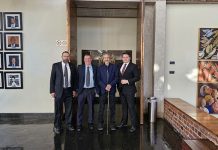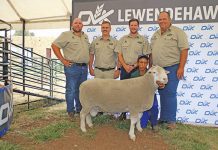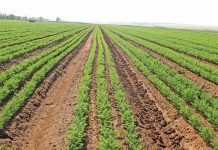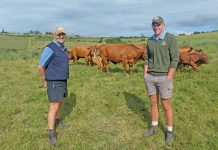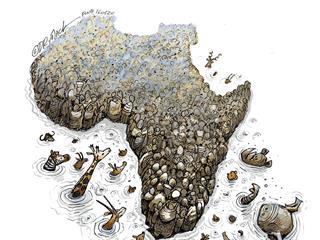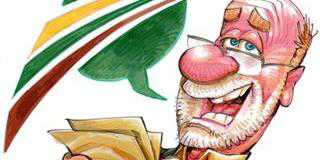The theme of this year’s congress ‘Break the barriers of silence’ can be approached negatively or positively. There are those who want a more forceful approach from organised agriculture to our relationship with government. The fickleness of the land reform debate constantly presents new challenges to leadership, with frustration on the ground approaching breaking point that surfaces with each new bill that is tabled.
The following quote by Prof Steven Friedman, who directs the Centre for the Study of Democracy at Rhodes University and the University of Johannesburg, touches the core of the problem: “When parties distrust each other – partly because they visibly differ from each other – but they are interdependent, they are forced to negotiate with each other.
The longer this distrust lasts, the bigger the gap between them becomes, and this makes negotiations more difficult. But they do have a choice. These are the realities one must acknowledge to better understand the negotiations between commercial farmers and government.”
No trust
The lack of trust between the private sector and government has a crippling effect on many aspects of policymaking. The only way to change distrust into trust is to keep talking – and keep doing what you talk about. Some debates in agriculture have fallen into racial stereotyping and we should break the silence on that. It is a fact that commercial agriculture is in favour of orderly land reform and will diligently help to establish new black farmers.
We have many plans to help establish new farmers and these plans have been shared with the authorities. We want to work in partnership with government. Commercial agriculture is deeply concerned about the welfare of workers, and cares about socio-economic issues such as poverty, unemployment and inequality. We would like to do something concrete about it. The critical success factors are property rights, free enterprise, training and education.
The Constitution does not inhibit wealth creation or transformation – we can make progress on both. Free State Agriculture is an agent of change and we are instrumental in achieving an inclusive agricultural sector in the province. Let us share our views on these issues with society. We need more conversations between rational and reasonable people from all walks of life. We need discussions on the constitutional rights of all South Africans and our ideals of how these can be achieved.
We need conversations about our vision for a unified and prosperous agricultural sector that can provide new opportunities for those who were deprived of them. South Africans are good at talking of one another but not to one another. We are good at racial stereotyping. We find ourselves in an uncomfortable silence on the issues we need to address. Communication builds trust but the achievements of the sector are some of the best-kept secrets in the country.
We do not talk about our achievements despite the fact that we know exactly what we are doing. This is a shortcoming given the fact that we find ourselves in the midst of powerful tides of ideology in the country. The problem with ideology is that if you are not principled you’ll either be swept along or swept away. If we want to prevail as FSA we need to adhere to liberal or socio-democratic principles. Liberalism should include social justice.
The legitimate role of the state is to address issues such as unemployment, health care, education and the expansion of civil rights. The majority of farmers in the Free State support broader liberal and socio-democratic values. They know what social justice is. This is underscored by the fact that FSA commissioned a land audit for the province to support orderly and efficient land reform.
The perception that white farmers are conservative and resistant to change nevertheless remains. The agricultural sector has to break the silence on this mistaken belief. The belief that farmers do not take good care of their workers also persists. We will have to work hard to change it.
SA under attack
I stop short of calling a prominent ideology that is currently sweeping the country nationalism. I’d rather call it the sacrifice of South Africa’s hard-won freedom. This ideology is evident in the attacks on the rule of law, the undermining of the Constitution, and attacks on freedom of expression. There is a lack of accountability, education is in a crisis, we suffer from waves of corruption, and investor confidence is wavering.
This ideology is also evident in the increase in populism – politicians making statements on, for instance, land reform that they know full well cannot be implemented. I am also concerned about central planning. We first had Pretoria, and now we have Luthuli House. But, as the previous FSA president Louw Steytler said, if we stick to the Constitution and liberal socio-democratic principles we will be all right.
Moving forward
The late President Nelson Mandela said: “I am fundamentally an optimist. Whether that comes from nature or nurture, I cannot say. Part of being optimistic is keeping one’s head pointed toward the sun, one’s feet moving forward. There were many dark moments when my faith in humanity was sorely tested, but I would not and could not give myself up to despair. That way lay defeat and death.”
That is the outlook of FSA as well. The spate of farm murders in the province shows a total lack of respect for life and property. We cannot accept it. It has the potential to push people over the brink should we not show strong leadership. We do not have the luxury of losing self-control. If we lose control we will only become part of the chaos. We have to work extra hard to involve as many people as possible in FSA’s safety and security structures. – Annelie Coleman
Phone Dan Kriek on 051 444 4609 or email [email protected].







